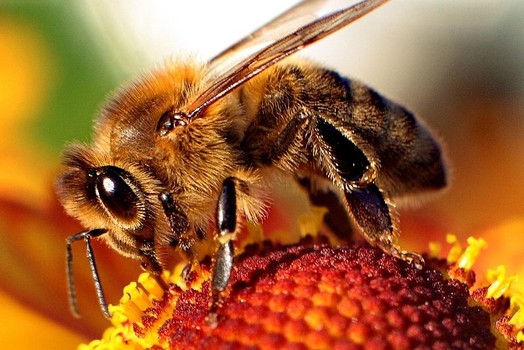Manganese, as it exists in the present environment, acts on honey bees in a way that is very similar to the long-term effects of methamphetamine on humans. Yehuda Ben-Shahar and Eirik Søvik, biologists at Washington University in St. Louis, together with colleagues from Andrew Barron’s lab at Macquarie University in Australia discovered the detrimental effect manganese has on honey bees.
Honey bees that come into contact with too much manganese complete foraging trips faster than bees that were not exposed to manganese. The bees that were exposed made fewer successful foraging trips than unexposed bees. The levels of manganese the bees were exposed to are considered to be safe for humans. The honey bees eventually demonstrate symptoms that are similar to Parkinson’s disease due to the loss of neurons that process dopamine. The effects of manganese on honey bees are very similar to the effects of long-term use of methamphetamine in people.
Manganese is an essential mineral for honey bees. The problem came about when people began mining manganese in large quantities. The manganese dust that has been released into the atmosphere is detrimental to honey bees. The researchers found that the Malvolio gene allows the transport of manganese across cell barriers. The gene also addicts bees to sugar. The uninhibited transport of all manganese the honey bee is exposed to causes the detrimental effects of manganese in honey bees. The Malvolio gene also makes bees become foragers before they are physically mature enough for the job.















